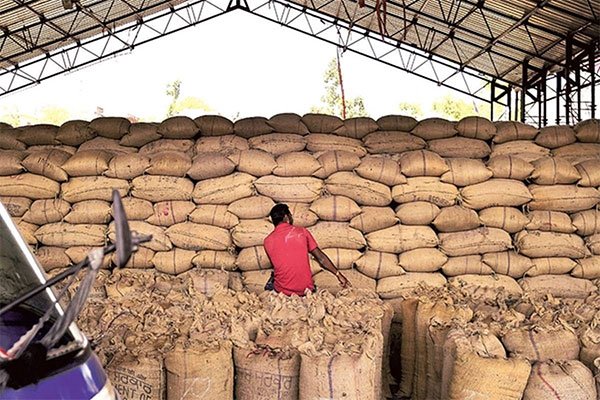The Ministry of Cooperation in India is set to sign agreements with various entities, including the Department of Consumer Affairs (DoCA), National Bank for Agriculture and Rural Development (Nabard), National Cooperative Development Corporation (NCDC), and National Cooperative Consumers’ Federation of India Ltd (NCCF), to establish the world’s largest food grain storage. The collaboration aims to integrate godowns at the Primary Agricultural Credit Society (PACS) level with the national food grain supply chain, providing essential market linkages for PACS.
The proposed collaboration will allow the NCCF to use its warehouses for storing various commodities like pulses, oilseeds, onions, and grains under government schemes such as the Price Support Scheme (PSS) and Price Stabilisation Fund (PSF). This initiative is part of the government’s strategy to address the shortage of food grain storage capacity in the country and is considered the largest in the world in the cooperative sector.
The current grain storage capacity in India is approximately 145 million tonnes, while the annual food grain output exceeds 300 million tonnes. The collaboration aims to ensure adequate storage facilities for food grains and other agricultural commodities. The government plans to expand the storage capacity to 215 million tonnes over the next five years.
The initiative involves creating agricultural infrastructure at the PACS level, including decentralized godowns, custom hiring centres, and processing units. It combines existing government schemes such as the Agri Infrastructure Fund (AIF), Agricultural Marketing Infrastructure Scheme, Sub Mission on Agricultural Mechanization, and Pradhan Mantri Formalization of Micro Food Processing Enterprises Scheme.
To enhance the economic viability of PACS, Nabard is supporting them by offering refinanced loans at subsidized rates, including a 3% interest subvention under the AIF scheme for projects up to ₹2 crore. The collaboration aims to diversify PACS’s business activities and generate additional revenue streams.
The pilot project has identified 1,711 PACS for storage capacity creation, with construction underway in 13 PACS across various states and union territories. Implementing agencies include Food Corp of India, Central Warehousing Corp, NABARD Consultancy Services, and National Buildings Construction Corp.
A National Level Coordination Committee has been established to oversee the extensive plan, comprising members from relevant ministries, departments, and central government agencies. The committee will guide the overall implementation and periodically review progress.
This collaborative effort signifies a significant step towards addressing India’s food grain storage challenges and strengthening the role of cooperatives in the country’s agricultural landscape.













